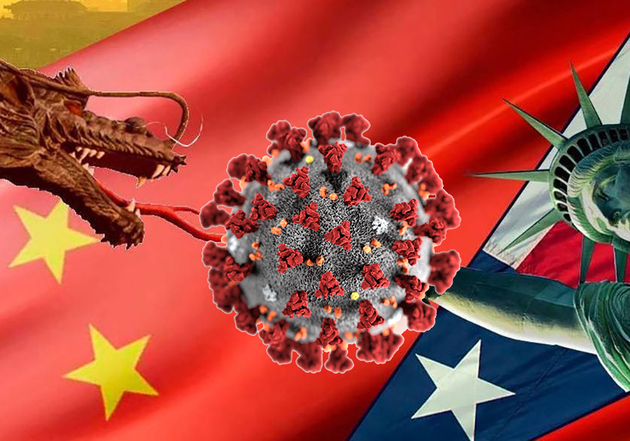The sharp decline of US-China ties during the coronavirus pandemic could steer the two countries into conflict. Taiwan and the South China Sea could be flashpoints. The question has taken a new urgency as acrimony escalates between Washington and Beijing amid the Covid-19 pandemic, Inkstonenews writes in the article Inevitable war? China, America and their next battlegrounds.
The question is also known as the Thucydides trap: an ancient Greek analogy that Harvard professor Graham Allison has popularized. In his 2017 book, Allison argued that wars were often unavoidable when a rising power challenges a ruling power. While observers mostly agree that an all-out war between the nuclear-armed nations is still improbable, the worsening US-China relations have raised the possibility of more direct conflict. Speaking at the World Economic Forum in Davos in January 2017, Xi said the Thucydides trap “can be avoided … as long as we maintain communication and treat each other with sincerity.”
But since then, the devastating Covid-19 pandemic has driven the deeply fraught US-China relations to the brink of an all-out confrontation as a result of strategic distrust and misperception, said Wang Jisi, President of Peking University’s Institute of International and Strategic Studies. “China and the US are shifting from an all-around competition to a full-scale confrontation, with little room for compromise and maneuvering,” Wang said in a speech in late March. The deterioration of US-China ties has alarmed president Xi Jinping and his top aides enough that the Chinese leaders are planning for “worst-case scenarios” with the US, said Xinhua, the state news agency. While Xinhua did not elaborate on what Xi meant by worst-case scenarios, a recent study by a Chinese government-backed think tank offered some hints.
The China Institutes of Contemporary International Relations (CICIR), affiliated with the Ministry of State Security, said Beijing may need to prepare for armed confrontation with Washington amid the worst anti-China backlash since the Tiananmen crackdown in 1989, according to Reuters, which cited an internal report.
The report warned that China’s overseas investments, especially the ambitious Belt and Road Initiative, could fall victim to rising anti-Chinese sentiments, while the US may accelerate efforts to counter Beijing’s expanding clout by increasing financial and military support for regional allies.
While the think tank declined to confirm the Reuters story, many international relations analysts shared similar bleak assessments of US-China relations. “We are already in an all-around confrontation with the US, which sees both sides at odds on almost every front – from trade and tech tensions, military, ideological and geopolitical rivalry, to political and legal battles over the coronavirus,” Zhu from Nanjing University said. “The prospects for bilateral ties are deeply worrying and we are just one step away from a new cold war.”
Seth Jaffe, assistant professor of political science and international affairs at John Cabot University in Rome and an expert on Greek history, said the Chinese think tank report was “profoundly concerning.” According to Jaffe, the author of Thucydides on the Outbreak of War: Character and Contest, although the temperaments of Trump and Xi would matter enormously in any actual crisis, it was the structural shifts in the balance of power in recent years that had brought the two sides closer to the brink.
Taiwan and the South China Sea
According to Jaffe, the most likely collision scenario would be in the South China Sea, an important waterway in global trade disputed between Beijing and multiple regional governments. He said an international incident would put Trump and Xi on a reputational collision course, with each leader facing pressure to stand up to the other and not back down, given the mistrust and heated rhetoric. Another potential flashpoint is Taiwan, a self-ruled democracy that Beijing claims as its territory.
However, a military confrontation over Taiwan in the near term is not likely, said Shelley Rigger, a political science professor at Davidson College in North Carolina. “The Chinese leadership surely understands the massive costs – in blood, treasure and reputation – of military action against Taiwan. They are way too smart to count on the US not intervening,” she said.
Rigger noted several retired PLA officers, including air force Major General Qiao Liang, had unusually toned down their hawkish stance on seeking reunification with Taiwan by force. While experts called for efforts to lower tensions in the lead-up to the US presidential election in November, most said that would largely hinge on Trump.
“Anything is possible with Trump,” Rigger said. “If he thinks better relations with China will help him win re-election, he will do whatever it takes to turn the relationship around. I’d be really surprised if the Chinese leadership didn’t respond positively to such an opportunity.”






